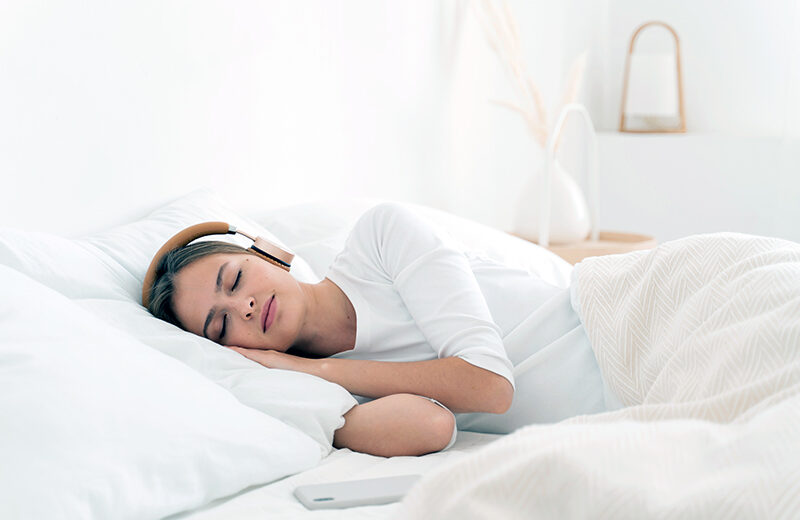Tinnitus, hearing sound in the absence of an external noise source, can be challenging and distressing to manage, particularly at bedtime. The quiet environment of the bedroom can exacerbate tinnitus symptoms, leading to difficulty falling asleep or staying asleep. This article will examine various tinnitus sleeping tips that can benefit individuals experiencing tinnitus, helping them achieve better sleep quality.
Tinnitus Sleeping Tips: How to Create a Healthy Sleep Routine
The Importance of a Sleep Routine
A consistent sleep routine can enable the body to associate specific cues with bedtime, resulting in a more effortless transition to sleep. Some helpful tips for creating a sleep routine include:
• Heading to sleep and waking up at the same times, even on the weekend
• Setting a relaxing bedtime ritual, such as bathing, reading, or deep breathing routines.
• Limit exposure to blue light, which can impede the body’s secretion of melatonin, a hormone that aids sleep patterns.
Sleep-Friendly Environment
Enhancing the bedroom’s sleep-friendly environment can aid individuals experiencing tinnitus in attaining quicker and more sustained sleep. Some recommendations for creating a conducive sleep environment include:
• To facilitate optimal sleep quality, it is recommended that a cool, dark, and quiet bedroom environment be created. This can be achieved by utilizing blackout curtains or a sleep mask to minimize exposure to light and employing earplugs or a white noise machine to mitigate external noise and tinnitus sounds.
• Eliminating potential distractions, such as electronic devices, work-related materials, or extraneous clutter, in the bedroom can foster a calm and relaxing atmosphere. This simple practice can enable one to unwind and achieve a more restful sleep.
• Investing in a high-quality mattress and pillows that deliver proper spinal alignment and relieve pressure points is a wise decision for achieving a restful and rejuvenating sleep. This can ensure you wake up feeling refreshed and ready to tackle the day ahead.
Employ Sound Therapy
Implementing sound therapy at bedtime can be beneficial for creating a more soothing environment and masking tinnitus sounds. Several sound therapy options are available that can help achieve this goal. These devices offer a reliable and effective solution to individuals who suffer from tinnitus and can help improve their quality of life.
• Sound generators, or tinnitus maskers, are devices designed to produce specific sounds that effectively mask tinnitus symptoms.
• White noise machines are electronic devices designed to produce a continuous, calming sound that can help alleviate tinnitus and facilitate relaxation.
• Music therapy can be a valuable method for individuals with tinnitus. Listening to calming music or nature sounds at a low volume may help alleviate the distress caused by tinnitus while promoting relaxation.
Practicing Relaxation Techniques
Incorporating relaxation techniques into one’s bedtime routine can be a beneficial approach in reducing stress and anxiety associated with tinnitus. This can subsequently contribute towards achieving better quality sleep. Some common relaxation techniques include:
Deep breathing exercises
Focusing on slow, deep breaths can promote relaxation and alleviate tinnitus-related stress.
Progressive muscle relaxation
Slowly tensing and slacking different muscle groups in the body can assist in releasing stress and promoting relaxation.
Mindfulness meditation
Mindfulness meditation is concerned with focusing thoughts on the current moment, free of judgment, which can help reduce stress and anxiety.
In conclusion, implementing sleep strategies and creating a sleep-friendly environment can help tinnitus sufferers get the rest they need. Establishing a regular sleep routine can also improve sleep quality and overall well-being.





